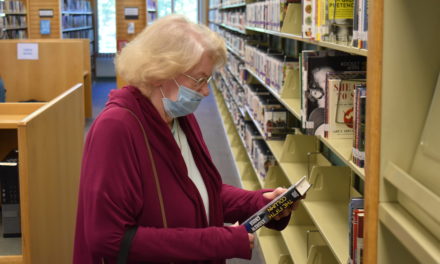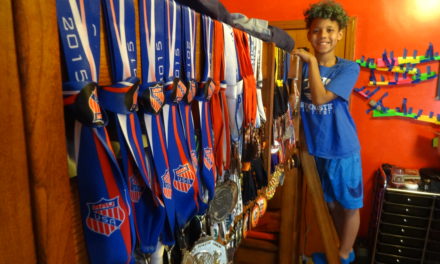Brookfield school administrators are forging a policy to allow high school students to use cellphones, computer tablets, laptops, music devices and other computer-based devices in prescribed circumstances at school.
The school board said July 25 administrators don’t have to wait until the policy is adopted to start allowing device use by students, and that the initial period will help in formulating the policy.
“I think we need to move in this direction as a whole,” board member Tim Filipovich said.
High school principal Adam Lewis drafted the policy based on Boardman’s, where he worked prior to taking the job with Brookfield, and asked that phones and other devices be allowed to play a role in the classroom.
The current policy bans device use in all circumstances unless a teacher requests that phones be allowed for classroom use.
“It’s a handheld computer that almost all of our students have on a daily basis,” Lewis said of cellphones in a July 24 interview. “We can’t provide everybody a computer but, if they have their own phone and are able to access those, I support that.”
“We’re supposed to create 21st century learners and, if we’re taking away a piece of technology every student has, I would rather show them how to use it responsibly and how they can use it in the classroom, preparing for college,” Lewis said. “It’s (phone) not only a form of communication, it’s a way to do work. We’re a Google district so a lot of our things are on the Google Educational Suite. Students are able to access their accounts there. It allows them to communicate with their teachers. There’s going to be some administrative things where they can communicate with us. I just think it would be easier if they’re allowed to have access to their phones.”
The high school bought about 90 Chromebooks and they would be the primary option for class use, he said.
“The cell phones would be kind of a secondary resource,” he said.
High school history teacher Mary Arp said she appreciated that teachers will have discretion over device use, but understood how they could be used to benefit students and her classes.
“There have been times when I wanted different groups to look up different things,” she said. “A lot of the kids use their phones simply for writing papers. They’ve been very respectful about, ‘I need to work on my English paper, but it’s on Google docs on my phone, can I please use it?’”
Students will not be allowed to make or take telephone calls, post to social media or use phones at assemblies, but they will be allowed to check their phones in the hallways and at lunch. There will be no use in bathrooms or locker rooms – athletes can listen to music if they have earbuds – and the study hall monitors and librarian will decide usage.
Monitoring usage will not be an exact science, but the school will be able to catch things like posting to social media through its wifi service, Lewis said.
“I know that once a student logs into our wifi, anything they put out there is essentially ours,” he said. “We’re able to track that content to make sure they’re doing what they’re supposed to be doing.”
Superintendent Velina Jo Taylor said allowing device usage will allow the district to teach “digital citizenry.”
“We have turned a blind eye and said, ‘No cellphones,’ and really haven’t approached the kids or helped the kids understand how to be responsible using that technology,” she said. “I think this is a great opportunity for us to bridge that gap.”
School board member Kelly Carrier agreed, saying cellphones are not going away.
“Even at work, now, everyone has their cellphones on their desk,” she said. “You need to figure out what the proper boundaries are.”
- Home
- _Home
- About
- Advertise
- Contact
- Donate
- Find NEWS On the Green in print
- Latest
- Subscribe
- The legal stuff
- About
- Animals
- Arts/Entertainment
- Business
- Cemetery
- Church news
- Community
- Community service
- Comprehensive Plan
- Cool photos
- county news
- Domestic violence
- Drainage
- Elections
- Environment
- Guest column
- Health care
- History
- Housing
- Letter to the Editor
- Library
- News
- Police
- Politics
- Profile
- Property maintenance
- Racism
- Recreation
- Religion
- Rescue-Fire
- Sanitary sewers
- Schools
- Sports
- State
- Streets
- ToDo
- Transportation
- Veterans
- Water service
- Zoning
Select Page








